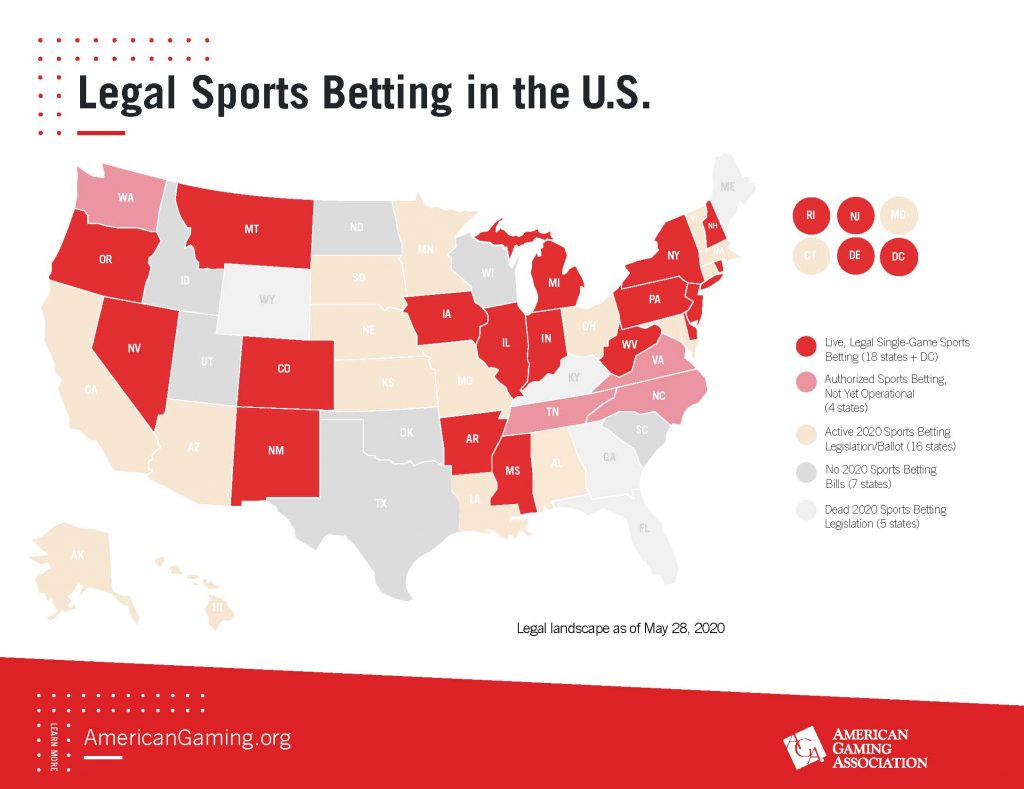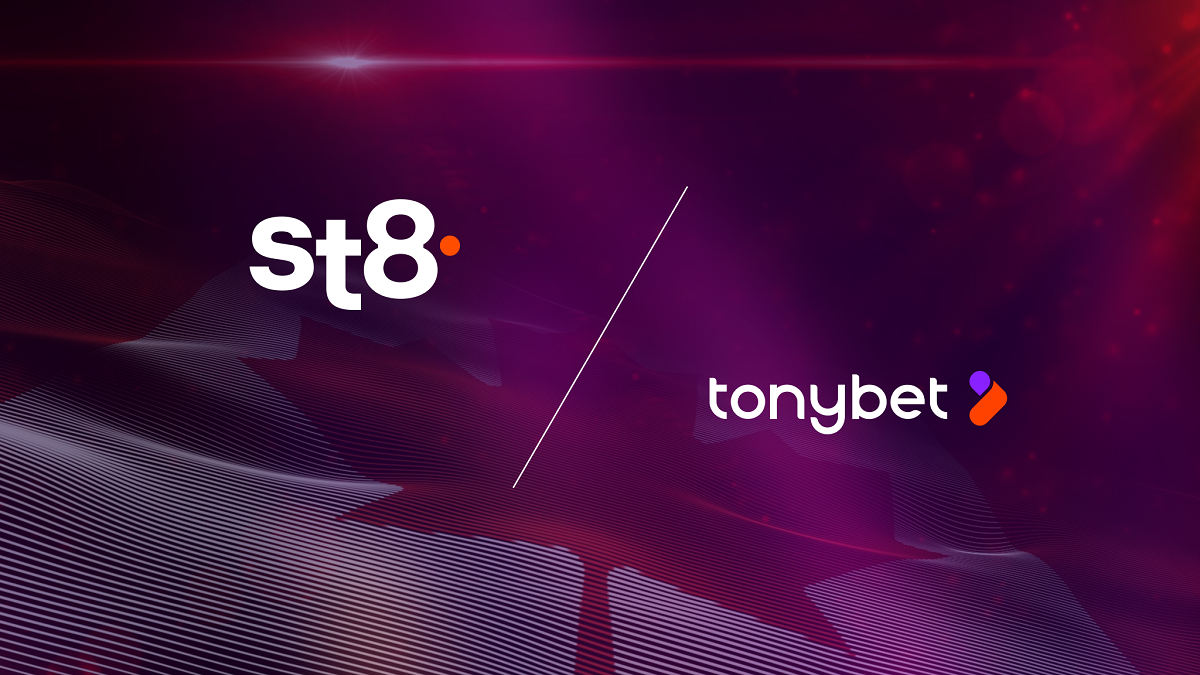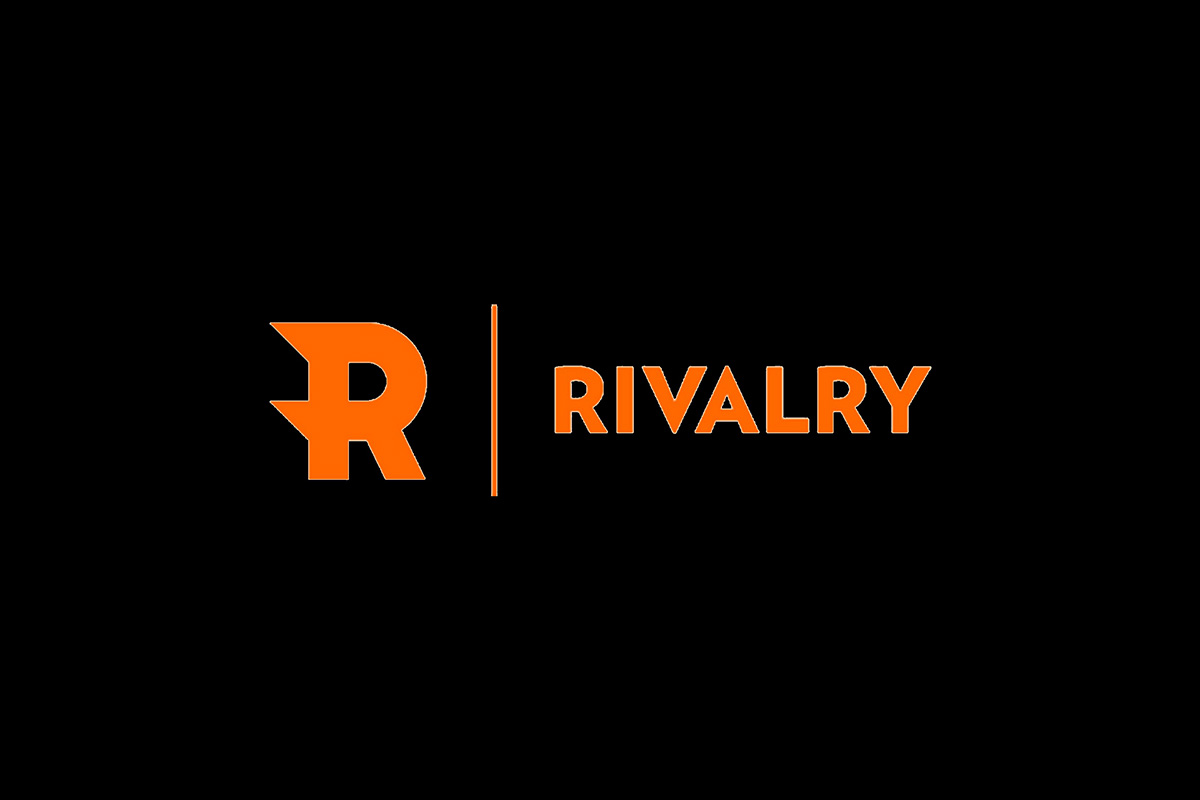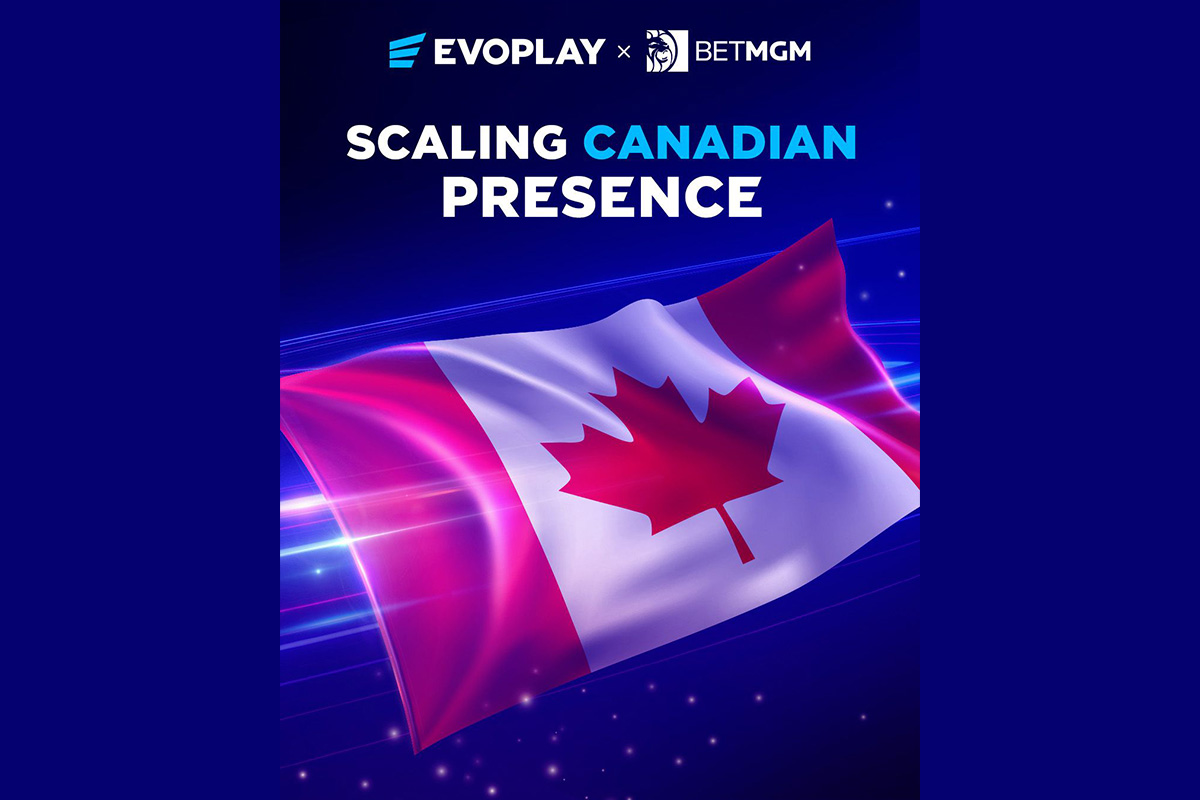Canada
What We Can Learn From the US States That Have Legalized iGaming

For many, gambling is an emotive subject. Some people love it. The anticipation, the thrill, and what-ifs that form while waiting for the result. However, some people and communities object to gambling on moral grounds; these could be related to religion, morals, or traditions. The USA has always had a strange relationship with gambling ranging from total prohibition to Las Vegas marketing itself as the world’s gambling capital. Ever since the Supreme Court overturned the 1992 Professional and Amateur Sports Protection Act that had served as a blanket prohibition on state-sponsored sports betting, state after state has opened up to legalized gambling. Before the ban was lifted, it was estimated that Americans wagered $150 billion illegally every year.
That $150 billion figure illustrates that banning something does not make it go away; it simply drives it underground. While some states like Utah and Hawaii will never legalize gambling, many others are looking at the trailblazer states like New Jersey or overseas to Europe and seeing that regulated gambling can bring significant revenue to state coffers.
The state of New Jersey pushed for the change to the law, and New Jersey immediately passed laws that allowed Monmouth Park to begin to take sports bets. The state had licensed legalized online casinos and poker rooms in 2013, and by August 2018, the first online sports books in the state were opened.
We can learn from New Jersey alone that gambling is big business. In September 2018, the state handled $1.01 billion in wagers. The lion’s share of this came from igaming at nine casinos and three racetracks. In addition, according to the New Jersey Division of Gaming Enforcement, $92.7 million was spent online.
What really matters to the states that have legalized online gambling is the revenue it generates for private operators and their shareholders and the taxes levied for the state. For example, the latest figures from the New Jersey Division of Gaming Enforcement are as follows:
“For the month of June, Internet Gaming Win reported by casinos and their partners was $133.1 million, reflecting growth of 24.4% compared to $107.1 million for the prior period. For the year-to-date period, Internet Gaming Win reported by casinos and their partners was $814.5 million, reflecting growth of 28.4% compared to $634.2 million for the prior year-to-date period.
Sports Wagering Gross Revenue: Sports Wagering Gross Revenue reported by casinos, racetracks, and their partners was $39.2 million for June 2022, reflecting a 44.9% decrease when compared to $71.3 million in the prior period. Sports Wagering Gross Revenue reported by casinos, racetracks, and their partners was $308.7 million for the year-to-date, reflecting a 16.2% decline when compared to $368.3 million for the prior period. ”
UK companies had highly developed gaming software and technology. The best NJ online casino was able to integrate the existing games onto its platform to get it up and running quickly. The European operators had been working in legalized markets for years. So rather than try and reinvent the wheel, states that have legalized iGaming have imported the technology and business acumen from businesses that already knew what they were doing.
This model was followed up by all the states who went on to legalize iGaming. There are now 21 states where sports betting is legal. In Connecticut, Delaware, Michigan, New Jersey, Pennsylvania, and West Virginia, residents can play online casino games, including table games like blackjack and roulette and a wide variety of online slots. The technology behind these games comes from European brands. They already have an extensive portfolio of games backed up by the top software providers in the world. They also have developed the best algorithms to spot potential gamblers and prevent gambling harms where possible.
There is constant innovation in this market. Companies are constantly bringing out new slot games to ensure that there is something for players to enjoy. In addition to the enhanced graphics and animations which make exciting virtual gaming online possible, gamblers can now play games with a live dealer without leaving the comfort of their own homes.
While the US might have been behind the UK and other countries in legalizing online gambling, the US land-based casinos are now looking to buy up the European pioneers. MGM has recently agreed to purchase Stockholm-headquartered online slots company LeoVegas.
The states that have legalized iGaming are finding that they are not only gaining revenues through taxation but are attracting tourists’ money too. Americans no longer have to go exclusively to Las Vegas to be able to enjoy a flutter. To gamble legally, a player must be physically present in their gambling state. They do not have to be permanent residents. This means that sports fans can enjoy a gamble on the game’s outcome. As well as the revenue from the gambling tax, a state like Pennsylvania can also benefit from hotel revenues from people attending the game or placing a bet from their holiday accommodation.
The most significant barrier to entry for operators is the high cost of doing business in a state like Pennsylvania. The tax rate in the state is effectively 36%, and operators have to pay an upfront $10 million licensing fee. As more states open up, will they need to start competing against each other?
Powered by WPeMatico
Canada
St8 launches in Ontario through partnership with Tonybet

Casino games aggregator and full-service technology provider, St8 has officially gone live in Ontario’s regulated market through a new partnership with international brand Tonybet.
Through the partnership, Tonybet gains access to St8’s casino games aggregation platform, offering a wide range of premium titles from leading providers through a single API, alongside bonusing and promotional tools, compliance and licensing solutions, advanced reporting and data capabilities.
Built as a single scalable platform, St8’s products are designed to help operators launch and grow across regulated markets with fast, flexible technology solutions while maintaining full compliance.
The agreement marks a further step in St8’s global growth strategy as the company continues to expand its presence across regulated jurisdictions.
Vladimir Negine, CEO at St8, said: “Going live in Ontario is an important milestone for St8 and reflects our continued commitment to growth in regulated markets. Since receiving our Ontario licence, we have focused on building strong local partnerships and delivering a platform that combines scalability, speed and compliance.
“As a respected international brand, Tonybet shares our commitment to building reliable solutions for regulated markets, and we look forward to working closely together as we continue to expand our presence in regulated jurisdictions worldwide.”
Kiryl Liudvikevich, Head of Product at Tonybet, added: “As we expand our presence in Ontario, it is important for us to work with technology partners that support continued growth while meeting the highest regulatory standards.
“St8’s platform gives us the flexibility to integrate a wide range of content and tools through a single connection, helping us scale smoothly while maintaining a strong focus on player experience.”
St8 continues to lead the way as a partner of choice for regulated markets. In addition to its Ontario licence, the company holds licences in key regulated jurisdictions like the United Kingdom, Sweden and Romania, among others.
The post St8 launches in Ontario through partnership with Tonybet appeared first on Americas iGaming & Sports Betting News.
Canada
Rivalry Corp. Announces Significant Reduction in Operations and Evaluation of Strategic Alternatives

Rivalry Corp. announced that its Board of Directors has approved a significant reduction in operating activity as the Company evaluates strategic alternatives in respect of its assets and operations.
The Company is engaged in discussions with third parties regarding potential transactions. However, in light of recent performance volatility, the Board has determined to materially reduce the scale of operations while assessing whether a strategic transaction or other alternative can be advanced.
Effective immediately, the Company is implementing substantial cost reductions, including a significant workforce reduction and reduced operating expenditures. The Company has paused player activity on its platform and is facilitating player withdrawals in the ordinary course.
The Company is assessing a range of potential alternatives, which may include asset-level transactions, corporate transactions, restructuring initiatives or other strategic outcomes.
Given the Company’s reduced operating scale and the ongoing evaluation process, there can be no assurance that any strategic alternative will be completed or that operations will continue in their current form.
The post Rivalry Corp. Announces Significant Reduction in Operations and Evaluation of Strategic Alternatives appeared first on Americas iGaming & Sports Betting News.
Alex Malchenko
Evoplay Strengthens Canadian Presence with BetMGM Partnership

Evoplay is celebrating another milestone in its regulated-market journey with a new launch in Ontario, teaming up with BetMGM to bring its games to one of Canada’s most dynamic and competitive jurisdictions.
The rollout introduces 18 Evoplay titles to BetMGM Casino in Ontario, carefully selected to deliver long-term engagement and appeal to a wide range of player preferences. The first wave includes proven performers such as:
• Hot Triple Sevens
• Hot Volcano
• Gold of Sirens Bonus Buy
• Inner Fire Bonus Buy.
These are games that have already demonstrated strong results across multiple regulated markets.
This launch marks another confident step in Evoplay’s Canadian expansion, reinforcing the company’s commitment to aligning its content with local market requirements, player expectations, and regulatory standards.
Alex Malchenko, Head of Sales at Evoplay, said: Ontario continues to set a high standard for regulated online casinos, making it a market where the right partnerships truly matter. Collaborating with BetMGM allows us to expand our reach with a portfolio that has already performed strongly across multiple areas and territories.
Oliver Bartlett, VP of Gaming at BetMGM, said: “Partnering with Evoplay adds a strong selection of proven, high-performing titles to our growing portfolio in Ontario.”
The post Evoplay Strengthens Canadian Presence with BetMGM Partnership appeared first on Americas iGaming & Sports Betting News.
-

 Latest News7 days ago
Latest News7 days agoTRUEiGTECH Unveils Enterprise-Grade Prediction Market Platform for Operators
-

 Canada7 days ago
Canada7 days agoRivalry Corp. Announces Significant Reduction in Operations and Evaluation of Strategic Alternatives
-

 Acquisitions/Merger7 days ago
Acquisitions/Merger7 days agoBoonuspart Acquires Kasiino-boonus to Strengthen its Position in the Estonian iGaming Market
-

 Firecracker Frenzy™ Money Toad™7 days ago
Firecracker Frenzy™ Money Toad™7 days agoAncient fortune explodes to life in Greentube’s Firecracker Frenzy™: Money Toad™
-

 Blueprint Gaming5 days ago
Blueprint Gaming5 days agoBlueprint Gaming unleashes Frankenstein’s Fortune blending dynamic modifiers with multi-path bonus offering
-

 Compliance Updates6 days ago
Compliance Updates6 days agoHow to Apply for a Finnish iGaming License: Gaming in Finland Webinar on Application Steps and Technical Standards
-

 Big Daddy Gaming6 days ago
Big Daddy Gaming6 days agoBig Daddy Gaming® Expands European Footprint After MGA Licence Approval
-

 Africa7 days ago
Africa7 days agoEveryMatrix gains South Africa licence with customer launch pipeline on the rise



















